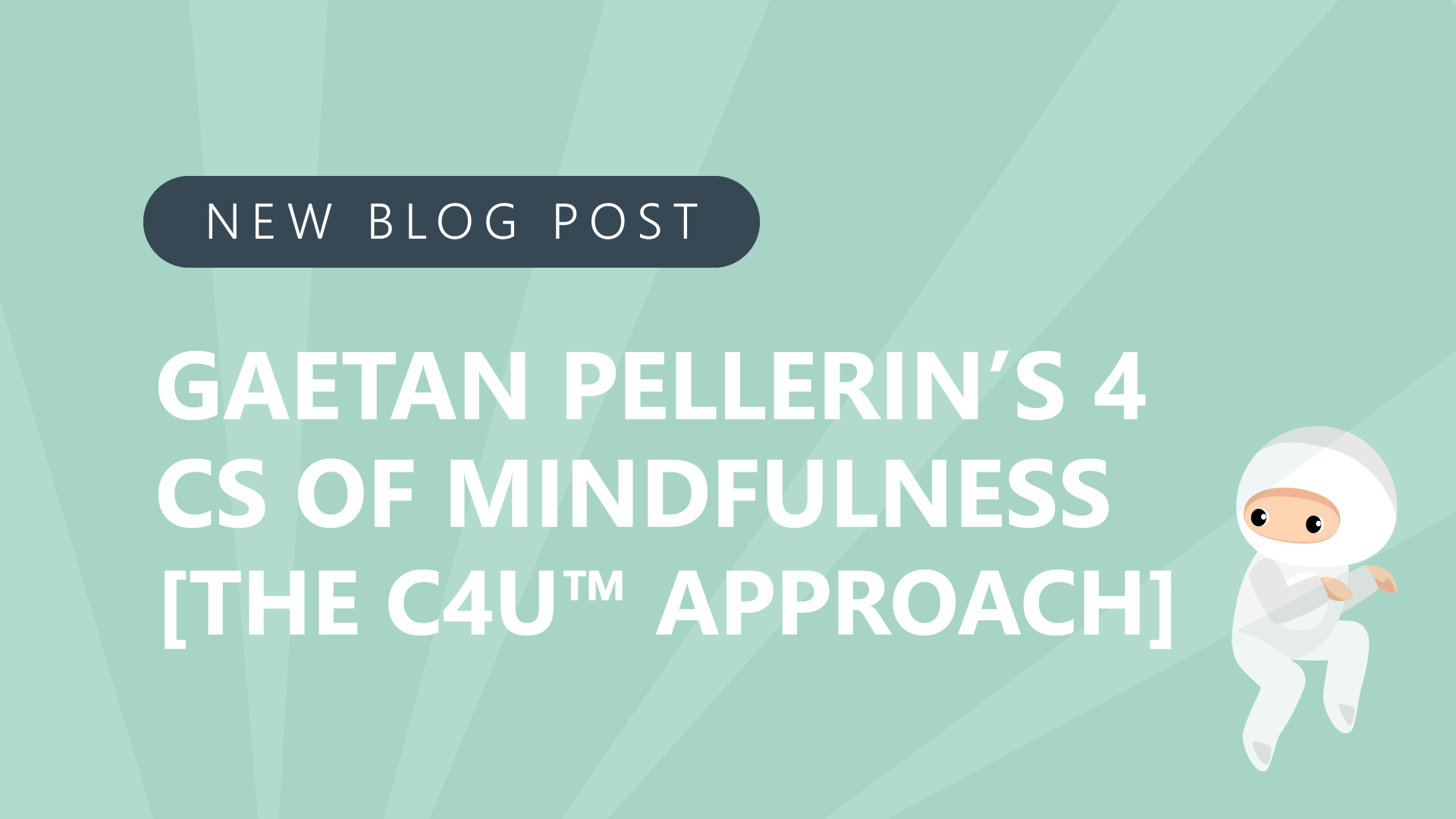Gaetan Pellerin is the author of a new book all about mindful negotiation: “Mindful NEGOtiation: Becoming More Aware in the Moment, Conquering Your Ego and Getting Everyone What They Really Want.” Gaetan took his fascination with understanding human behavior and drive and applied it to the negotiation process. He found that many negotiators focus on planning and strategy but underemphasize how emotion plays into negotiations.
So Gaetan created a framework that helps negotiators—and anyone—learn to better understand how their ego plays a role in negotiation through mindfulness. He refers to it as the 4 Cs of Mindfulness or C4U™ approach.
C #1: Connection with ourselves
Breathe and focus on what’s going on inside yourself. Are you tense? Angry? Afraid? Disappointed? C1 is about taking the first step to calm your mind so you can focus.
C #2: Curiosity
Choose to be curious about your inner experience. There is no objective or goal to solve what’s happening other than to observe and be curious about how you’re feeling.
- “I feel like I’m going to explode.”
- “I feel like this is the end of the world.”
In Gaetan’s book, he shares some questions that can help you answer why you feel the way you are and who the emotion belongs to. Does it stem from something a parent said when you were young? Is it true that you have no power?
When Gaetan consults with a customer, he has them talk to him like they’re talking to a customer or salesperson. They don’t exhibit the same fear. People can deliver bad news or have a hard conversation with him because they aren’t connected to the fear they’d face in the actual conversation. It helps them see how they can react in a situation where they’re confident and fearless.
C #3: Compassion
Sometimes you may feel that you’re not skilled or that you can’t do something. You’re judging yourself for whatever happens. When you do that, it’s hard to move beyond what’s there. If you struggle to communicate or speak in public, judging yourself won’t help you improve. Compassion is a cornerstone of the process.
C #4: Change or Choice
If you’re angry, can you decide to let it go? Can you decide that the procurement people in front of you want to intimidate you? Can you change your behavior? Can you be more in the moment? It’s about moving your behavior away from your instinctual unconscious reactions. You may have to look your fear in the face and make a decision that feels uncomfortable, a choice that your ego wouldn’t naturally make.
Managing unexpected emotions in others
The best part of Gaetan’s framework is that you can apply it yourself and others. So you can utilize it within a negotiation if your counterpart is displaying unexpected emotion. When someone is emotional, they either want to be seen or be heard. So you need to connect with compassion and be curious about their reaction.
If someone is having a conversation with you and they explode in anger, you can address it. “I see that you are angry at me; what’s going on? If I upset you, I’m sorry because that was not my intent.” Acknowledging that emotion is the entryway to a better conversation.
People don’t want to deal with their emotions, but if they don’t, those emotions become the elephant in the room. You can’t negotiate with persuasion when someone is emotional. It also helps you to detach from their reaction because it may not be your fault. But you need to understand what triggered them to get to that emotional response.
To learn more about Gaetan’s 4 Cs of mindfulleness framework and the role of mindfulness in the negotiation process, check out episode #266 of the Negotiations Ninja podcast!

